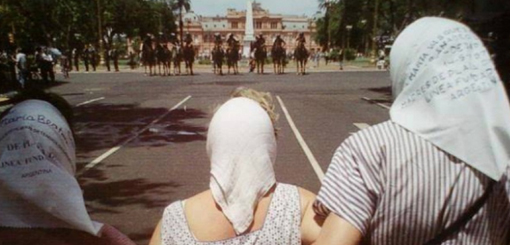This Saturday marks the 45th anniversary of the first time that the mothers of a group of disappeared people gathered in the Plaza de Mayo to demand that their children appear alive. They were kidnapped, tortured and disappeared during the last civil-military dictatorship.
Tired of filing appeals and complaints seeking the whereabouts of their children, the Mothers changed their strategy.

"Why don't we all go to the Plaza de Mayo? When he sees that there are so many of us, Jorge Videla (the then de facto president) will have to see us", said Azucena Villaflor de Vicenti, one of the organisers, who was also disappeared by the regime.
The meeting took place on 30 April 1977, when they gathered around the monolith in the centre of the square.
Immediately, Police officers tried to remove them from the place, warning them that they could not stand there. But, faced with the women's refusal, they insisted: "Move along, move along".
And so the story began, and the Mothers began to circulate slowly around the Pyramid of May, holding each other by the arms, despite the helplessness and fear that did not prevent them from continuing with their purpose.
In addition to Azucena Villaflor de Vicenti, Berta Braverman, Haydée Gastelú de García Buelas, María Adela Gard de Antokoletz, Julia Gard, María Mercedes Gard, Cándida Gard, Delicia González, Pepa Noia, Mirta Baravalle, Kety Neuhaus, Raquel Arcushin and two other women whose names are unknown joined in that first round.
The year after the first march, in 1978, the silenced protests were given unexpected visibility: they were filmed in a Dutch documentary on the first day of the World Cup, to the dismay of the military leadership, which had invited foreign media to highlight the sporting spectacle in an attempt to conceal the political situation in the country.
In the records that are repeated on each anniversary, they can be heard: "We want to know where our children are. At least tell us where they are".






